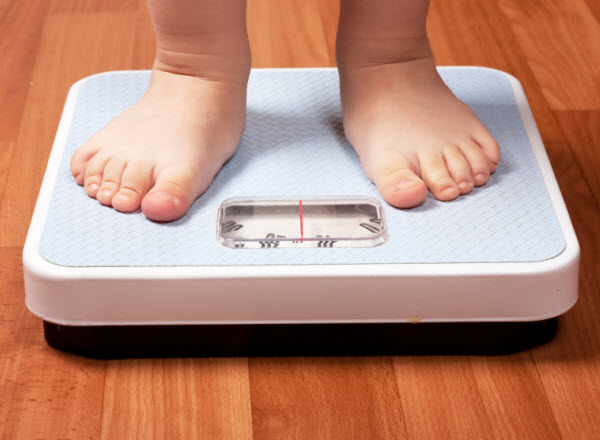High blood pressure, diabetes, high cholesterol, sleep apnea – can you name someone who has any these diseases?
In all likelihood, that person you identified is a middle-aged adult who is overweight or obese. Most people would probably label these “adult” diseases, but this is rapidly changing. As many as 25% of American children are overweight, and 11% are obese. Kids of all ages are suffering from these complications of childhood obesity, and it’s time that we take notice of this new epidemic and learn what we can do to help prevent it.
Starting at 2 years old, we measure the Body Mass Index (BMI) at every well child visit. The BMI compares the child’s weight and height, giving us a number that we can measure against known standards in order to see if your child is at a healthy weight. The BMI is just one part of the equation in your child’s health, however. We also take into account the child’s general appearance, diet, physical activity, and any other information we may have. Looking at the big picture helps us decide on an appropriate plan of action.
Being overweight or obese can affect your child’s body systems in many ways that are very similar to how an adult is affected. Below are some examples of medical problems children may develop, listed by system affected:
- Endocrine: Diabetes, polycystic ovarian syndrome
- Cardiovascular: High blood pressure, high cholesterol, coronary artery disease
- Gastrointestinal: Gallstones, liver disease
- Pulmonary: Obstructive sleep apnea
- Musculoskeletal: Hip disease, fractures
There are many psychological consequences of obesity, as well. Even if your child is physically healthy, he or she may be suffering on the inside. It is important that we gauge how they are feeling about their health and what their thoughts are at each visit. Involving the child in the treatment plan is essential for success.
The treatment for obesity depends on the presence of complications. If there are no complications, we may give you some healthy eating and exercise tips and see you back in the office in a few months. I find that referring to a licensed dietician is also helpful for many families struggling with this diagnosis. We may also perform blood work on your child to check the status of the above body systems; depending on what we find, your child may be referred to a pediatric specialist for further evaluation and treatment.
Treating obesity is both a process and a partnership. Early diagnosis is critical, and getting the family unit on board with the care plan is essential. Often there is no “quick fix,” and treatment relies on tracking your child’s progress over the years. But the first step is awareness: pediatricians everywhere need to work with parents to help them accept that obesity is a problem and empower them to make healthy choices for their kids!
Resources:
- Childhood Obesity Prevalence and Prevention: http://www.nutritionj.com/content/4/1/24
- Centers for Disease Control and Prevention: http://www.cdc.gov/healthyyouth/obesity/facts.htm
http://www.fda.gov/BiologicsBloodVaccines/Vaccines/QuestionsaboutVaccines/UCM070430



